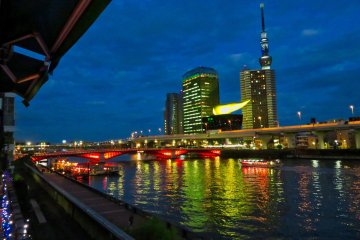Japanese cuisine is delicious and healthy but many vegans in Japan end up simply buying vegetables & fruits at supermarkets and rice balls or French fries elsewhere. Based on 14 years in Japan (notably as tour guide), my recommendations below should help enjoy Japan's food and ambiance.
All-you-can-eat fruit picking
At the right place during the right season, fruit lovers and children can have a great day: fruit is very tasty and sweet in Japan, and some prefectures are extremely famous for specific fruit. Cherries in Yamagata, grapes in Hokkaido, peaches in Okayama, pears in Tottori, strawberries in Yamanashi... All-you-can-eat fruit picking is reasonably priced but you may have to rent a car or join a bus tour to participate.

Vegan festivals
Big Japanese cities host vegan festivals every year with food trucks/booths by the main vegan businesses of the region; veganism is not yet strong enough in Japan to gather the big players from the whole country. Expect food & drinks, information about cooking classes, clothes... One may also enjoy fun/interesting combinations of events. For example, I joined a Yogafest and Vegan Gourmet Festival in Yokohama, which had a corner for people practising yoga with their dogs!
Vegetables buffet lunch in Tokyo
Near Tokyo Grand Shrine (where the first public Shinto wedding ceremony took place), Petit Bonheur proposes a healthy and cheap lunch buffet prepared with vegetables obtained from carefully-selected small producers. Proof of quality: the English-speaking owners provide vegetables to hotels and restaurants in Tokyo, Osaka, etc.
I regularly lunched at this shop when I worked nearby, enjoying its tastes and textures, and occasionally experiencing a never-seen-before vegetable. Tourists may appreciate the pink walls and free Wi-Fi but not the lack of space for suitcases...


Shop: Petit Bonheur (プティ・ボノ) Address: 247 Building, 2-4-7 Fujimi, Chiyoda-ku, Tokyo 102-0071 (〒102-0071 東京都千代田区富士見2-4-7、247ビル) Subway/train: Iidabashi station
Vegan lunch with terrace in Tokyo
Near the Imperial Palace, Lifull Table proposes a different vegan lunch every weekday, including a drink bar, at a reasonable price. Many seats inside and outside (far from cars - avoid during humid summer days) with much space for bags and easy access even with a wheelchair. The vegan lunch set is typically marked "vegetarian" in English; if you see only Japanese characters, just say "vegetarian" to the friendly staff. Some will appreciate having the choice between white rice (haku-ma-i) and unpolished/brown rice (gen-ma-i).
I often eat there alone or with interns/colleagues, typically ordering an optional "ume-boshi" pickled dried plum. Great restaurant for local workers, especially the employees of Lifull Tokyo Headquarters (just above).
Restaurant: Lifull Table (ライフルテーブル) Address: 1-4-4 Kojimachi, Chiyoda-ku, Tokyo 102-0083 (〒102-0083 東京都千代田区麹町1-4-4) Closed: Saturdays, Sundays, public holidays, end & beginning of year. Subway: Hanzomon station Website: https://table.lifull.com
Vegan ramen in Tokyo
Near the National Theatre of Japan and Japan Travel agency, Soranoiro proposes ramen noodles with great taste and texture at a reasonable price. Go for dinner rather than lunch to avoid queueing, especially if you want a table for 3-5 persons. The vending machines in English and Japanese are convenient, and include a vegan section.
I occasionally eat at this restaurant with vegans as well as with non-vegans. It is fine with children, and there is some space for bags. If you become a fan, try the other branches: each restaurant features a different recipe based on different ingredients!
Restaurant: Soranoiro Kojimachi (ソラノイロ本店) Address: Blue Building 1B, 1-30-10 Hirakawa-cho, Chiyoda-ku, Tokyo 102-0093 (〒102-0093 東京都千代田区平河町1丁目3-10ブルービル本館1B) Closed: Saturdays, Sundays and public holidays. Subway: Kojimachi station Website: https://soranoiro-vege.com
Vegan sushi in Tokyo
Near Jimbocho Book Town, Loving Hut (editor: now closed) proposes a fine lunch buffet every Saturday but you can get an exciting vegan sushi set if order 1-2 weeks before going. The food is home-made, organic (as much as possible), and free of alcohol; oriental vegan is available (no garlic, chives, leeks, onions, scallions).
I often ate at this restaurant when it was still open on weekdays, discussing in English with the staff. I also satisfactorily used its catering services for vegan sushi when helping organize international conferences in Tokyo!
Restaurant: Loving Hut Jimbocho (ラビングハット神保町店) Address: Okada Building (2F), 1-54 Kanda-jimbocho, Chiyoda-ku, Tokyo 101-0051
Fucha-ryori dinner in Tokyo
A good walk away from Asakusa, Bon proposes beautiful savoury dinners in a traditional environment. The Japanese decorations and tatami mats help create a peaceful atmosphere.
I ate twice at this restaurant and will certainly go again with special guests (preferably without children). Check the prices, reserve early, and arrive on an empty stomach: the staff may be offended if you do not finish your meal (seriously)...

Restaurant: Bon (梵) Address: 1-2-11 Ryusen, Taito-ku, Tokyo 110-0012 (〒110-0012 東京都台東区竜泉1-2-11) Closed: Wednesdays. Subway: Iriya station Website: https://www.fuchabon.co.jp/english/english.html
Vegan lunch box in Kyoto
Specialist of sesame ("goma" in Japanese), Gomacro Salon sells tasty light bento lunch boxes at a reasonable price near Kyoto Imperial Palace. Perfect for a park or while riding a shinkansen high-speed train (you can also eat on site) that afternoon.
Shop: gomacro Salon (ゴマクロサロン) Address: 67-3 Shinmei-cho, Nakagyo-ku, Kyoto, Kyoto 604-8207 (〒604-8207 京都府京都市中京区神明町67-3) Closed: Mondays. Subway: Karasuma Oike station Website : http://gomacro.jp/cafe/
Fucha-ryori dinner at a Zen temple in Kyoto
Near Kyoto Imperial Palace, Kanga-an Buddhist temple proposes extraordinary dinners with a great ambiance, and has welcomed a rajah, official delegates of the USA... English-speaking "staff" can explain the dishes, and documents are available to understand the values/concepts of the religious order. The experience and memories are worth the price!
I ate there on daytime and during evenings with Indian VIPs, and would love to go back during various periods of the year. Even before reaching the temple itself, I was charmed by the gate, statues, spring blossoms, illuminations at night... Reserve early and arrive on an empty stomach (lots of food).

Temple: Kanga-an (閑臥庵) Address: 278 Shingoryoguchicho, Kita-ku, Kyoto, Kyoto 603-8146 (〒603-8146 都府京都市北区烏丸通鞍馬口東入ル278) Subway: Kuramaguchi station Website: kangaan.jp
Shojin-ryori breakfast at Dewa-sanzan
Miyatabo temple lodging proposes breakfasts typically prepared for pilgrims visiting the 3 holy Mountains of Dewa: Mount Gassan, Haguro & Yudono. No need for lunch or afternoon snacks after such a big breakfast including soup, rice, pickles, tofu, bamboo, mushrooms, eggplant, pumpkin...
My morning there convinced me that fans of the Japanese culture will enjoy the experience, sitting on tatami mats, and maybe bathing at the local hot spring before breakfast. Miyatabo is great for a big group but I would not recommend it to travellers with a child or bad hip.
Lodging: Miyatabo (宮田坊) Address: 225 Haguro-machi Touge, Tsuruoka, Yamagata 997-0211 (〒997-0211 山形県鶴岡市羽黒町手向225番地) Website : http://www.miyatabou.com
Travel tips
Being the source of Buddhism in Japan, the Kansai region (Kyoto, Nara...) is more favourable to vegans: it features many restaurants proposing Shojin-ryori Buddhist cuisine. I would similarly recommend destinations such as Mount Koya, which allows temple stays.
Biggest producers of vegetables in Japan, Chiba prefecture (Narita airport and surroundings) and Hokkaido prefecture (great with a car) have most potential for flexitarians and for vegans who can speak Japanese.
Small vegan restaurants struggle so check the opening days, and make a reservation whenever possible to avoid bad surprises. Do not expect standard hotels to have vegan options.
These recommendations are not a "Japan Vegan Top 10"; I would need to travel all the time for that. Please also explore information shared by other vegans living/travelling in Japan... and feel free to recommend updates in the comments below.











